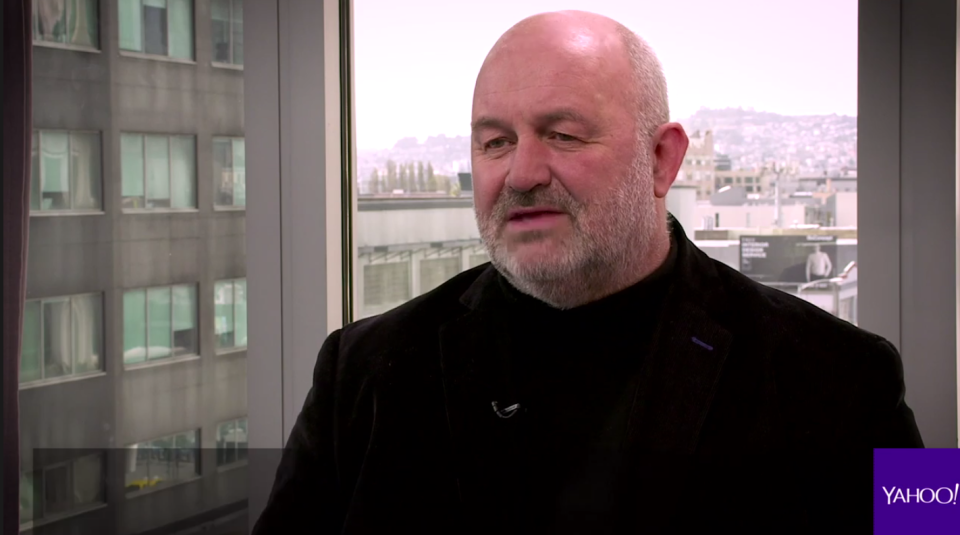Amazon CTO: Why more companies are moving to the cloud
Amazon is unfazed by President Donald Trump’s recent criticism of Amazon (AMZN), which is vying for a lucrative government contract, Amazon CTO Werner Vogels told Yahoo Finance.
“We’ve had a long and great relationship with the White House and with the DoD [Department of Defense], and as such, I think this is really business as usual for us,” Vogels told Yahoo Finance during an interview at the AWS Summit in San Francisco earlier this April.
Amazon Web Services, or AWS, is seen as a front-runner in a competition with Alphabet (GOOG, GOOGL) and Microsoft (MSFT) for an exclusive 10-year multibillion-dollar contract that would modernize the U.S. Department of Defense’s information technology system. Although Vogels declined to discuss specifics around the process, Amazon’s odds of landing the government contract are very good, given how the company already hosts classified systems with the CIA, as well as other top defense contractors like Lockheed Martin.
The Pentagon said this week there is no clear front-runner for the contract.

Regardless of the outcome, AWS is stronger than ever. The cloud-based business, which reports a $20 billion revenue run rate, announced more than 1,400 services and features in 2017, with over 1 million customers, including McDonald’s (MCD), Netflix (NFLX), Spotify (SPOT), and UnderArmour (UAA).
At the AWS Summit in early April, AWS announced that Cox Automotive, owner of Autotrader and Kelley Blue Book, as well as Shutterfly were following other businesses such as Comcast (CMCSA) and GoDaddy, which in recent months have shifted more, if not most, of their workloads from running on local data servers to AWS, in part because AWS makes a company’s operations more cost-efficient while offering comparable, if not better, performance in some instances. AWS’s cloud-based nature also allows a company to rapidly grow or scale back its services as it sees fit.
“If you look at Cox Automotive, you can imagine that sort of access to their services during the day is much higher than at night when they run their own data centers,” Vogels explained. “They basically are fixed in their infrastructure, but on AWS, that becomes elastic. Developer productivity is no longer about worrying about just getting access to servers or things like that — it becomes about agility and just being able to move faster and the ability to do innovation to build new products much faster than you could in the process. Some of these companies would tell you that in the past it would take them six to nine months to deliver new features and services. Now, it will be a matter of days or weeks.”
As AWS continues to evolve, expect voice features and apps to become more prominent, suggested Vogels — a sentiment that supports what AWS CEO Andy Jassy told Yahoo Finance in December. Indeed, the voice-enabled assistant, Alexa, already runs on AWS.
“The integration of voice into all different places both as a consumer as well as in the enterprise is really taking off,” Vogels explained. “There’s something more, though. I think we will see also that large groups that have never had access to digital systems. Now if you’ve ever given your grandmother a tablet, you know that the only thing she does is hit the Skype button. However, she could talk to it. That will be a whole different thing. She doesn’t need to think about it… We see it in developing countries where it’s almost that old smartphone being the internet to these developing countries.”
But Vogels points out that this isn’t happening yet in these countries because “most of these people can’t afford smartphones.”
Which means for Amazon and Alexa, there’s much more untapped opportunity in the years to come when prices for some smartphones become more affordable for these markets.
—
JP Mangalindan is the Chief Tech Correspondent for Yahoo Finance covering the intersection of tech and business. Email story tips and musings to [email protected]. Follow him on Twitter or Facebook.
More from JP
Facebook to combat pornography and hate speech with more content reviewers
Facebook CEO Mark Zuckerberg owes lawmakers answers to these questions
Facebook’s Mark Zuckerberg returns for second day of Congressional hearings
Admitting mistakes, Mark Zuckerberg says he’s still the best person to run Facebook
Richard Branson: Government regulation of Facebook ‘makes sense’
